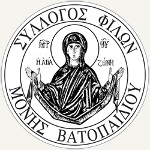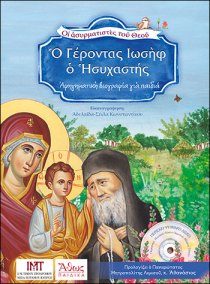 Macrina was the eldest sister of St. Basil the Great and St. Gregory of Nyssa. As a young virgin, Macrina was bethrothed to a nobleman. When her betrothed died, Macrina vowed never to enter into marriage saying: «It is not right for a maiden once betrothed to a young man to seek another: according to the law of nature there must be only one marriage as there is but one birth and one death.» She further justified this by her faith in the resurrection considering her bridegroom, not dead but alive in God. «It is a sin and a shame,» says Macrina, «for a wife not to safeguard her faithfulness when her husband travels to a distant land.» After this, together with her mother, Emilia, she received the monastic tonsure in a convent, where they lived a life of asceticism with other nuns. They lived from the labors of their hands devoting a greater part of their time to godly thoughts, prayer and the constant uplifting of their minds to God. In time her mother died and, afterward her brother Basil. Nine months after the death of St. Basil, Gregory came to visit with his sister and found her on her death bed. Before her death, Macrina lifted up her prayers to God: «You, O Lord, Who gives rest to our bodies in the sleep of death for a time, will again awaken them [the bodies] at the last trump. Forgive me and when my soul divests itself of its bodily attire and presents itself before You, pure and without sin, grant that it may be as incense before You.» After that she traced the sign of the cross on the forehead, eyes, face and on her heart and gave up her soul. She found rest in the Lord in the year 379 A.D.
Macrina was the eldest sister of St. Basil the Great and St. Gregory of Nyssa. As a young virgin, Macrina was bethrothed to a nobleman. When her betrothed died, Macrina vowed never to enter into marriage saying: «It is not right for a maiden once betrothed to a young man to seek another: according to the law of nature there must be only one marriage as there is but one birth and one death.» She further justified this by her faith in the resurrection considering her bridegroom, not dead but alive in God. «It is a sin and a shame,» says Macrina, «for a wife not to safeguard her faithfulness when her husband travels to a distant land.» After this, together with her mother, Emilia, she received the monastic tonsure in a convent, where they lived a life of asceticism with other nuns. They lived from the labors of their hands devoting a greater part of their time to godly thoughts, prayer and the constant uplifting of their minds to God. In time her mother died and, afterward her brother Basil. Nine months after the death of St. Basil, Gregory came to visit with his sister and found her on her death bed. Before her death, Macrina lifted up her prayers to God: «You, O Lord, Who gives rest to our bodies in the sleep of death for a time, will again awaken them [the bodies] at the last trump. Forgive me and when my soul divests itself of its bodily attire and presents itself before You, pure and without sin, grant that it may be as incense before You.» After that she traced the sign of the cross on the forehead, eyes, face and on her heart and gave up her soul. She found rest in the Lord in the year 379 A.D.
Saint Nikolai Velimirovch , The Prologue from Ohrid




































